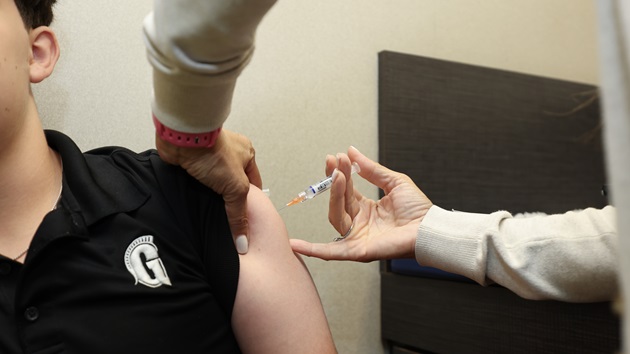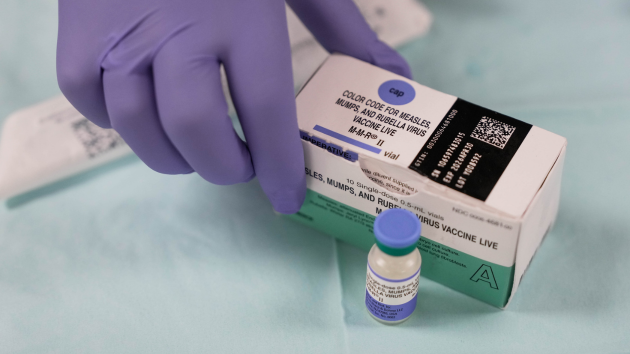JN.1 variant makes up a majority of COVID cases in the US. Here’s what to know
Written by ABC Audio ALL RIGHTS RESERVED on January 5, 2024

(NEW YORK) — A variant that has been circulating in the U.S. for the last couple of months currently makes up a majority of COVID-19 cases in the United States.
JN.1, a descendant of BA.2.86 — which is itself an offshoot of the omicron variant — now makes up an estimated 61.6% of cases in the country, according to data from the Centers for Disease Control and Prevention. This is up from the estimated 3.3% of cases the variant made up in mid-November, CDC data shows.
The Northeast is the region of the U.S. with the highest prevalence, making up an estimated 74.9% of COVID-19 cases, according to the CDC.
Last month, the World Health Organization listed JN.1 as a “variant of interest,” meaning it contains changes that may result in increased spread or reduced efficacy of treatments or vaccine but is not as serious as a “variant of concern.”
This comes as COVID-19 hospitalizations continue to increase across the U.S., rising for the eighth consecutive week to levels not seen since January 2023.
JN.1 has an additional mutation in its spike protein compared to its parent, BA.2.86, according to the CDC. The spike protein is what the virus uses to attach to and infect cells.
The CDC says this suggests that either the variant is more transmissible or better at evading the immune system than other variants that are circulating.
“It does seem to be more transmissible because it’s rising up the charts, not only in terms of the majority of cases right now, but the rate of increase is really dizzying,” Dr. Peter Chin-Hong, a professor of medicine and an infectious disease expert at the University of California, San Francisco, told ABC News.
He pointed that out that the U.S. being able to track JN.1 is sign that public health systems are successfully identifying new variants and following variant spread.
“To me, anyway, the U.S. lagged many countries early on in the pandemic, but right now, I think by tracking where JN.1 is going — not only as a country but in regions — really gives me confidence that, as we move along in the pandemic, we are able to hopefully identify new variants, the programs in airports, wastewater. They are all going to work together,” he said.
Public health experts said there is no evidence JN.1 has different symptoms or causes more severe illness and that it’s normal for the virus to mutate, causing new variants to emerge.
Additionally, existing tests, vaccines and treatments are still expected to work, experts say.
In an update on Friday, the CDC said that COVID test positivity levels in wastewater samples are higher than this time later year.
Chin-Hong said data from Singapore and from other countries, where JN.1 was predominant earlier, shows it does not seem to be causing a higher proportion of people to be hospitalized.
“But like with other variants that are more transmissible, the more people that get infected, even if a smaller percentage of them go to the hospital, it’s going to numerically mean a lot,” he said.
He explained that this is why it’s important to get the updated vaccine. As of Friday, only 19.4% of adults ages 18 and older have received the updated vaccine, CDC data shows.
“We know that immunity wanes the fastest in those who are older and those who are immunocompromised,” Chin-Hong said. “And for people who didn’t get [COVID] in the summer, they might say, ‘Well, look, I did all these things. I didn’t get it.’ It may not be true for JN.1. Enough time has elapsed since many [people] got a shot.”
Copyright © 2024, ABC Audio. All rights reserved.

 KVSP
KVSP 




